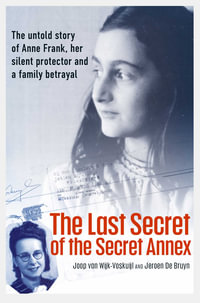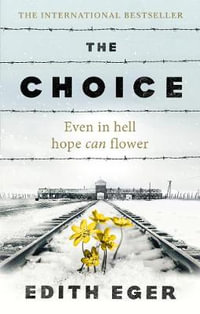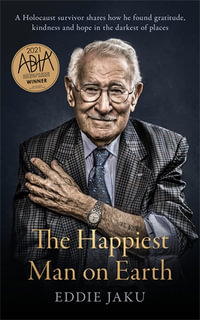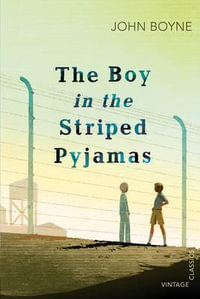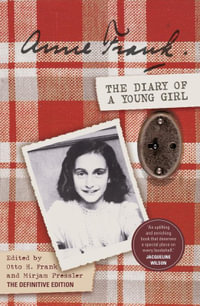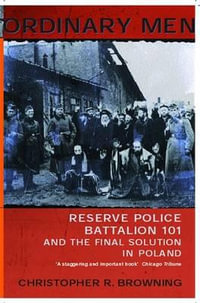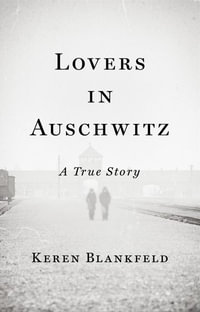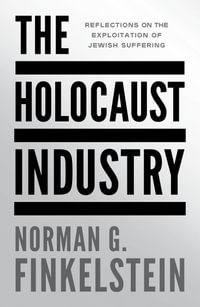A Powerful, Life-Affirming New Perspective on the Holocaust
Almost ninety children and grandchildren of Holocaust survivors-theologians, scholars, spiritual leaders, authors, artists, political and community leaders and media personalities-from sixteen countries on six continents reflect on how the memories transmitted to them have affected their lives. Profoundly personal stories explore faith, identity and legacy in the aftermath of the Holocaust as well as our role in ensuring that future genocides and similar atrocities never happen again.
There have been many books and studies about children of Holocaust survivors-the so-called second and third generations-with a psycho-social focus. This book is different. It is intended to reflect what they believe, who they are and how that informs what they have done and are doing with their lives.
From major religious or intellectual explorations to shorter commentaries on experiences, quandaries and cultural, political and personal affirmations, almost ninety contributors from sixteen countries respond to this question: how have your parents' and grandparents' experiences and examples helped shape your identity and your attitudes toward God, faith, Judaism, the Jewish people and the world as a whole?
For people of all faiths and backgrounds, these powerful and deeply moving statements will have a profound effect on the way our and future generations understand and shape their understanding of the Holocaust.
Praise from Pope Francis for Menachem Rosensaft's essay reconciling God's presence with the horrors of the Holocaust:
"When you, with humility, are telling us where God was in that moment, I felt within me that you had transcended all possible explanations and that, after a long pilgrimage-sometimes sad, tedious or dull-you came to discover a certain logic and it is from there that you were speaking to us; the logic of First Kings 19:12, the logic of that 'gentle breeze' (I know that it is a very poor translation of the rich Hebrew expression) that constitutes the only possible hermeneutic interpretation.
"Thank you from my heart. And, please, do not forget to pray for me. May the Lord bless you."
-His Holiness Pope Francis
Contributors:
Justice Rosalie Silberman Abella of the Supreme Court of Canada
Historian Ilya Altman, cofounder and cochairman, Russian Research and Educational Holocaust Center, Moscow
New York Times reporter and author Joseph Berger, New York
Historian Eleonora Bergman, former director, Jewish Historical Institute, Warsaw
Vivian Glaser Bernstein, former cochief, Group Programmes Unit, United Nations Department of Public Information, New York
Michael Brenner, professor of Jewish history and culture, Ludwig-Maximilians University of Munich; chair in Israel studies, American University, Washington, DC
Novelist and poet Lily Brett, winner of the Commonwealth Writers' Prize Award, New York
New York Times deputy national news editor and former Jerusalem bureau chief Ethan Bronner, New York
Stephanie Butnick, associate editor, Tablet Magazine, New York
Rabbi Chaim Zev Citron, Ahavas Yisroel Synagogue and Yeshiva Ohr Elchonon Chabad, Los Angeles
Dr. Stephen L. Comite, assistant clinical professor of dermatology, Mount Sinai Hospital, New York
Elaine Culbertson, director of a program taking American high school teachers to study Holocaust sites, New York
Former Israeli Minister of Internal Security and Shin Bet director Avi Dichter, Israel
Lawrence S. Elbaum, attorney, New York
Alexis Fishman, Australian actor and singer
Shimon Koffler Fogel, CEO, Centre for Israel and Jewish Affairs, Ottawa
Dr. Eva Fogelman, psychologist and author, New York
Associate Judge Karen "Chaya" Friedman of the Circuit Court of Maryland
Natalie Friedman, dean of studies and senior class dean, Barnard College, New York
Michael W. Grunberger, director of collections, U.S. Holocaust Memorial Museum, Washington, DC
David Harris, executive director, American Jewish Committee, New York
Author Eva Hoffman, recipient of the Jean Stein Award from the American Academy of Arts and Letters, London
Rabbi Abie Ingber, executive director, Center for Interfaith Community Engagement, Xavier University, Cincinnati, OH
Josef Joffe, editor-publisher, Die Zeit, Germany
Rabbi Lody B. van de Kamp, author; former member of the Chief Rabbinate of Holland and the Conference of European Rabbis, Holland
Rabbi Lilly Kaufman, Torah Fund director, The Jewish Theological Seminary of America, New York
Filmmaker Aviva Kempner, Washington, DC
Cardiologist Dr. David N. Kenigsberg, Plantation, FL
Author and Shalom Hartman Institute fellow Yossi Klein Halevi, Israel
Attorney Faina Kukliansky, chairperson, Jewish Community of Lithuania, Vilnius
Rabbi Benny Lau, Ramban Synagogue, Jerusalem
Amichai Lau-Lavie, founding director, Storahtelling, Israel/New York
Philanthropist Jeanette Lerman- Neubauer, Philadelphia
Hariete Levy, insurance actuary, Paris
Annette Levy-Willard, journalist and author, Paris
Rabbi Mordechai Liebling, Reconstructionist Rabbinical College, Philadelphia
Knesset member Rabbi Dov Lipman, Israel
Rabbi Michael Marmur, provost, Hebrew Union College-Jewish Institute of Religion, Jerusalem
International banker Julius Meinl, president, Euro-Asian Jewish Congress, Prague
Knesset member and former journalist Merav Michaeli, Israel
The Right Honourable David Miliband, former foreign secretary, United Kingdom; president, International Rescue Committee, New York
Tali Nates, director, Johannesburg Holocaust and Genocide Centre, South Africa
Eric Nelson, professor of government, Harvard University
Eddy Neumann, esq., Sydney, Australia
Mathew S. Nosanchuk, Director for Outreach, National Security Council, the White House, Washington, DC
Artist and author Aliza Olmert, Jerusalem
Couples therapist Esther Perel, New York
Sylvia Posner, administrative executive to the Board of Governors, Hebrew Union College-Jewish Institute of Religion, New York
Rabbi Joseph Potasnik, executive vice president, New York Board of Rabbis
Dr. Richard Prasquier, past president, Conseil Representatif des Institutions Juives de France (Representative Council of French Jewish Institutions), Paris
Richard Primus, professor of law, University of Michigan Law School
Professor Shulamit Reinharz, director, the Women's Studies Research Center and the Hadassah-Brandeis Institute, Brandeis University, MA
Chaim Reiss, CFO, World Jewish Congress
Jochi (Jochevet) Ritz-Olewski, former vice dean of academic studies, The Open University of Israel
Moshe Ronen, vice president, World Jewish Congress; former president, Canadian Jewish Congress, Toronto
Novelist and Fordham University law professor Thane Rosenbaum, New York
Rabbi Dr. Bernhard H. Rosenberg, Congregation Beth-El, Edison, NJ
Art historian and museum director Jean Bloch Rosensaft, New York
Menachem Z. Rosensaft, general counsel, World Jewish Congress and professor of law, New York
Hannah Rosenthal, former U.S. State Department special envoy to monitor and combat anti-Semitism, Wisconsin
Rabbi Judith Schindler, Temple Beth El, Charlotte, NC
Clarence Schwab, equity investor, New York
Cantor Azi Schwartz, Park Avenue Synagogue, New York
Ghita Schwarz, senior attorney, Center for Constitutional Rights, New York
Psychologist Dr. David Senesh, Tel Aviv
Florence Shapiro, former mayor, Plano, Texas, and former state senator, Texas
Rabbi Kinneret Shiryon, Kehillat YOZMA, Modi'in, Israel
David Silberklang, senior historian, Yad Vashem, Israel
Documentary film maker and author Andre Singer, London
Peter Singer, professor of bioethics, Princeton University
Robert Singer, CEO and executive vice president, World Jewish Congress
Psychologist Dr. Yaffa Singer, Tel Aviv
Sam Sokol, reporter, The Jerusalem Post, Israel
Philanthropist Alexander Soros, New York
Rabbi Elie Kaplan Spitz, Congregation B'nai Israel, Tustin, CA
Michael Ashley Stein, executive director, Harvard Law School Project on Disability
Rabbi Kenneth A. Stern, Congregation Gesher Shalom, Fort Lee, NJ
Maram Stern, associate CEO for diplomacy, World Jewish Congress, Brussels
Carol Kahn Strauss, international director, Leo Baeck Institute, New York
Aviva Tal, lecturer in Yiddish literature, Bar Ilan University, Israel
Professor Katrin Tenenbaum, scholar on modern Jewish culture and philosophical thought, University of Rome
Dr. Mark L. Tykocinski, dean, Jefferson Medical College, Philadelphia
Rabbi Moshe Waldoks, Temple Beth Zion, Brookline, MA
Psychologist Diana Wang, president, Generaciones de la Shoa en Argentina, Buenos Aires
Author Ilana Weiser-Senesh, Tel Aviv
Jeffrey S. Wiesenfeld, former senior aide to New York Governor George Pataki and U.S. Senator Alfonse D'Amato
U.S. Senator Ron Wyden, Oregon
Sociologist Tali Zelkowicz, Hebrew Union College-Jewish Institute of Religion, Los Angeles
Industry Reviews
The continuing effect of the Holocaust has been the subject of much study. This volume gives voice to a broad range of children and grandchildren of Holocaust survivors who describe the ways this legacy continues to impact their worldview and their work in the world. These are heart-felt and moving testimonies.
The editor imposes order but not an orthodoxy to these responses. The four themes under which these responses are collected are guideposts that help the reader understand the variety of responses. If there is one common theme, it is that these are individuals who have used their legacy to move positively into the world.
This is not the first such anthology, nor will it be the last. It is a reminder that the horrors of 70-plus years ago continue to reverberate in our world. It should also be a reminder that the other atrocities that have shaken the world in the last century continue to shape the lives of millions, and would that we had a way to hear their testimony as well.
These reflections are enlightening and engaging. I would recommend them more as the stuff for occasional contemplation than for a straight read through the book. -- Rabbi Louis A. Rieser

